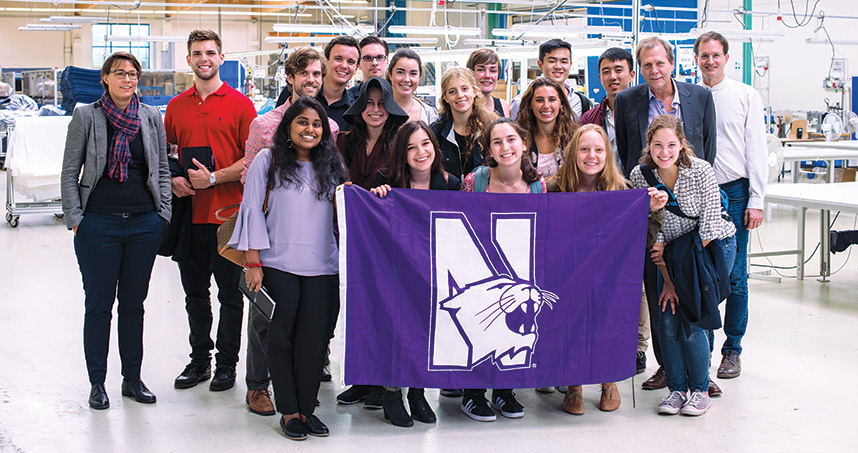Aspiring Engineers Explore Sustainability in Germany
Undergraduates visit German companies, organizations, and universities to learn about sustainable energy production, urban infrastructure, manufacturing, and carbon science
Would your career trajectory have changed if, at age 19, you could have discussed cutting-edge technology, innovative efforts in sustainability, and career opportunities with the head of a multinational corporation in a country widely recognized for its global leadership in sustainability?
That’s exactly the experience that 15 Northwestern Engineering rising sophomores had in September 2017 in Heidelberg, Germany as part of the inaugural Global Engineering Trek in Sustainability. The trek focused on giving young engineers first-hand exposure to international companies, non-governmental organizations, entrepreneurs, and universities that have taken the lead in developing sustainable solutions to everything from energy production and urban infrastructure to manufacturing and carbon science.
“In Germany, we saw how government incentives and the general culture of the population help incentivize and make it economically viable to make big investments and changes in favor of sustain-ability,” says Andre Schweizer, an industrial engineering major.
Created jointly by McCormick Global Initiatives and the Institute for Sustainability and Energy at Northwestern (ISEN), the trek is tailored to rising sophomores. Because these students still have several years of study remaining, the program could affect the direction of their studies.
“It was clear that we needed a new program of this sort,” says Matthew Grayson, director of McCormick Global Initiatives, associate professor of electrical engineering and computer science, and one of the trip’s leaders. “One that could inspire our youngest engineers with international opportunities that would enrich their remaining three years at Northwestern, and launch their career as future global leaders in engineering.”
During the inaugural trek, site visits to renewable energy facilities, like wind and solar farms, and tours of green chemistry factories showed students potential future applications of their engineering degrees. “I realized what an issue energy storage is for renewables,” says Tess Russell, an environmental engineering major. “It made me more confident in choosing my major because I know this is a problem I want to work on in the future.”
The trip was made possible in large part by funding from the Murphy Society. Based on the first year’s success, the program will continue in 2018 with past student participants taking on leadership roles.

